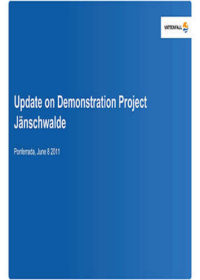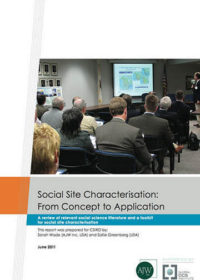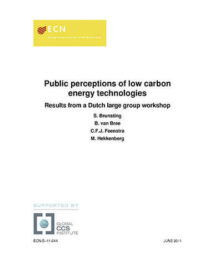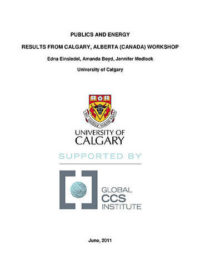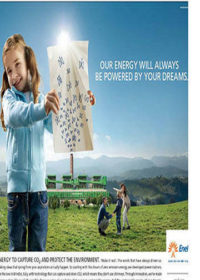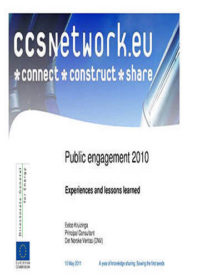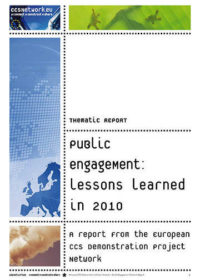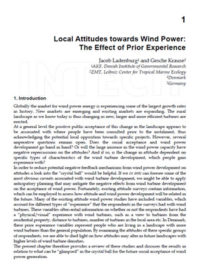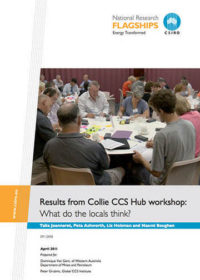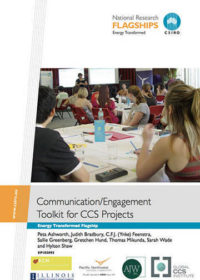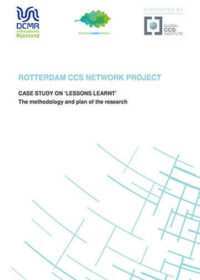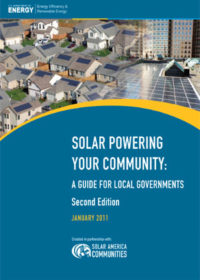Resources
Publications
Our publications, reports and research library hosts over 500 specialist reports and research papers on all topics associated with CCS.
View our Publication Library Disclaimer.
Filter by
Update on demonstration project Jänschwalde
8th June 2011
Topic(s): Carbon capture use and storage (CCUS), Public engagement
Disclaimer
The content within the Global CCS Institute Publications, Reports and Research Library is provided for information purposes only. We make every effort and take reasonable care to keep the content of this section up-to-date and error-free. However, we make no claim as to its accuracy, currency or reliability.
Content and material featured within this section of our website includes reports and research published by third parties. The content and material may include opinions and recommendations of third parties that do not reflect those held by the Global CCS Institute.
Social site characterisation: from concept to application. A review of relevant social science literature and a toolkit for social site characterisation
1st June 2011
Topic(s): Carbon capture use and storage (CCUS), Public engagement, Social research
Global observation by the scientific community of CCS demonstration projects has permitted a much wider understanding of aspects of CCS more closely aligned to the social sciences (i.e. sociology, anthropology, psychology, communications, and economics). This experience has provided insight, to some degree, into the public’s reaction to CCS and has been instrumental in informing several of the recent guides for designing CCS-related public outreach, communication, and engagement programs. Many guides for public outreach recommend that the developer take the necessary time during project planning to obtain a solid understanding of the concerns and perspectives of a project’s stakeholders. These should, in turn, be used in designing and implementing project deployment.
In many ways, social site characterisation is similar to the common steps of stakeholder identification, mapping, and response however, the term was chosen to resonate with technical experts involved in CCS who are keenly aware of the importance of site characterisation for ensuring the integrity of a CCS project.
Social site characterisation draws its reference from the critical role of geological site characterisation for CCS projects, expanding the concept however, to suggest that in addition to assessing the technical and/or physical characteristics of a site, one should also consider the social – or human – characteristics in selecting and designing projects.
This report begins to examine why and how to conduct social site characterisation for CCS projects. Part 1 reviews a selection of social science literature that could provide insights to CCS project development. Part 2 includes a series of practical Social Site Characterisation activities and workbooks to assist project proponents with the application and implementation of in-depth understanding of the local community. It is recommended to be utilised in conjunction with the Communications and Engagement Toolkit for CCS Projects.
Disclaimer
The content within the Global CCS Institute Publications, Reports and Research Library is provided for information purposes only. We make every effort and take reasonable care to keep the content of this section up-to-date and error-free. However, we make no claim as to its accuracy, currency or reliability.
Content and material featured within this section of our website includes reports and research published by third parties. The content and material may include opinions and recommendations of third parties that do not reflect those held by the Global CCS Institute.
Public perceptions of low carbon energy technologies: Results from a Dutch large group workshop
1st June 2011
Topic(s): Carbon capture use and storage (CCUS), Public engagement, Renewables
Disclaimer
The content within the Global CCS Institute Publications, Reports and Research Library is provided for information purposes only. We make every effort and take reasonable care to keep the content of this section up-to-date and error-free. However, we make no claim as to its accuracy, currency or reliability.
Content and material featured within this section of our website includes reports and research published by third parties. The content and material may include opinions and recommendations of third parties that do not reflect those held by the Global CCS Institute.
Publics and energy: results from Calgary, Alberta (Canada) workshop
1st June 2011
Topic(s): Carbon capture use and storage (CCUS), Public engagement, Renewables
Disclaimer
The content within the Global CCS Institute Publications, Reports and Research Library is provided for information purposes only. We make every effort and take reasonable care to keep the content of this section up-to-date and error-free. However, we make no claim as to its accuracy, currency or reliability.
Content and material featured within this section of our website includes reports and research published by third parties. The content and material may include opinions and recommendations of third parties that do not reflect those held by the Global CCS Institute.
Public engagement on Enel’s CCS projects
10th May 2011
Topic(s): Carbon capture use and storage (CCUS), Public engagement
Disclaimer
The content within the Global CCS Institute Publications, Reports and Research Library is provided for information purposes only. We make every effort and take reasonable care to keep the content of this section up-to-date and error-free. However, we make no claim as to its accuracy, currency or reliability.
Content and material featured within this section of our website includes reports and research published by third parties. The content and material may include opinions and recommendations of third parties that do not reflect those held by the Global CCS Institute.
Public engagement 2010: Experiences and lessons learned
10th May 2011
Topic(s): Carbon capture use and storage (CCUS), Public engagement
Disclaimer
The content within the Global CCS Institute Publications, Reports and Research Library is provided for information purposes only. We make every effort and take reasonable care to keep the content of this section up-to-date and error-free. However, we make no claim as to its accuracy, currency or reliability.
Content and material featured within this section of our website includes reports and research published by third parties. The content and material may include opinions and recommendations of third parties that do not reflect those held by the Global CCS Institute.
Thematic report: Public engagement: Lessons learned in 2010
9th May 2011
Topic(s): Carbon capture use and storage (CCUS), Public engagement
Disclaimer
The content within the Global CCS Institute Publications, Reports and Research Library is provided for information purposes only. We make every effort and take reasonable care to keep the content of this section up-to-date and error-free. However, we make no claim as to its accuracy, currency or reliability.
Content and material featured within this section of our website includes reports and research published by third parties. The content and material may include opinions and recommendations of third parties that do not reflect those held by the Global CCS Institute.
Local attitudes towards wind power: the effect of prior experience
4th April 2011
Topic(s): Public engagement, Renewables, Social research, Wind energy
This chapter, authored by Jacob Ladenburg and Gesche Krause, from the InTech book ‘From turbine to wind farms - technical requirements and spin-off products’, describes public acceptance of their changing rural landscapes as turbines are erected.
Disclaimer
The content within the Global CCS Institute Publications, Reports and Research Library is provided for information purposes only. We make every effort and take reasonable care to keep the content of this section up-to-date and error-free. However, we make no claim as to its accuracy, currency or reliability.
Content and material featured within this section of our website includes reports and research published by third parties. The content and material may include opinions and recommendations of third parties that do not reflect those held by the Global CCS Institute.
Results from Collie CCS Hub workshop: what do the locals think?
1st April 2011
Topic(s): Carbon capture use and storage (CCUS), Public engagement
The Australian Commonwealth Scientific and Industrial Research Organisation’s (CSIRO) Science into Society Group, in conjunction with the Western Australia Department of Mines and Petroleum, conducted a workshop in Harvey, Western Australia in February 2011, supported by the Global CCS Institute. The aims of the workshop were to:
- assess the public’s knowledge and attitudes towards climate change science and low emissions energy technologies, particularly CCS;
- establish a framework for future public participation in studies and evaluation of the Collie Hub concept; and
- explore the effectiveness of a participatory one-day workshop process to enable more informed dialogue about the issues and risks regarding climate change science and energy technology options.
Information was presented on climate change and low emission energy sources and related technologies, followed by a presentation on CCS and the Collie Hub project. The workshop resulted in a number of significant improvements in participants’ self-rated knowledge of climate change and related issues. The vast majority of participants expressed agreement that climate change was an important issue to Australia.
The reports outline the process and information from the community consultation in Harvey and detail the Collie CCS Hub workshop results. A separate document outlines the questions (and answers) raised by the workshop attendees. These documents provide useful information for project proponents looking to undertake similar community consultation activities, and highlights some of the issues pertinent to the public within the CCS space.
Disclaimer
The content within the Global CCS Institute Publications, Reports and Research Library is provided for information purposes only. We make every effort and take reasonable care to keep the content of this section up-to-date and error-free. However, we make no claim as to its accuracy, currency or reliability.
Content and material featured within this section of our website includes reports and research published by third parties. The content and material may include opinions and recommendations of third parties that do not reflect those held by the Global CCS Institute.
Communication/engagement toolkit for CCS projects
24th March 2011
Topic(s): Carbon capture use and storage (CCUS), Communication, Public engagement
Global research highlights that public engagement risks for CCS projects constitute one of the many non-technical aspects of the overall project risk profile. As an industry, CCS has seen some poor outcomes in this area, with a number of projects delayed or stopped because of public concerns. The Communications/Engagement Toolkit for CCS Projects was identified in collaboration with the Australian Commonwealth Scientific and Industrial Research Organisation (CSIRO) as a way to help project proponents plan their engagement activities and benefit from the experience of others.
The toolkit has been designed as a practical guide for CCS project developers. It is intended to assist in the design and management of communication and engagement activities for individual CCS projects. It provides a range of methods and activities for addressing the important social considerations for successful CCS project deployment. This social data and analysis represents the earliest stage of the stakeholder engagement continuum and it has the potential to help proponents to establish positive working relationships with local communities for the life of the project.
The toolkit provides project proponents with a set of activities and work sheets within the following areas: gathering social data, undertaking a SWOT analysis, preparing a stakeholder analysis and developing a high level public engagement plan.
The Institute commissioned the toolkit with the CSIRO, in association with the global social research network, and it forms part of a broader project entitled 'An International Comparison of CCS Communication activities'. The project is a long-term initiative to:
- understand the effectiveness of public engagement approaches globally; and
- provide tools to better inform the early stages of outreach strategy development.
The process included key global research institutions undertaking interviews with CCS project stakeholders, desk-top research, and focus groups to develop five key case studies on the following projects:
- Barendrecht;
- FutureGen;
- Carson;
- Otways; and
- ZeroGen.
An overview report which synthesises the key findings from the case studies includes a set of evaluation factors which can also be helpful for project developers to assist in evaluating the components that are required for effective project deployment. Download this overview report.
The toolkit builds on the findings from the case studies and underwent a series of global workshops and peer reviews to help shape the current content. It has the potential of being applied to other energy technologies such as geothermal, wind, and other sources. It is intended to be an organic document, which is built upon and developed as more CCS projects (or alternate energy projects) undertake public engagement activities and contribute learnings.
The Institute encourages comments and feedback on the toolkit to help optimise its content, and provide additional case studies from road-testing it. These comments can be shared below when logged in.
Disclaimer
The content within the Global CCS Institute Publications, Reports and Research Library is provided for information purposes only. We make every effort and take reasonable care to keep the content of this section up-to-date and error-free. However, we make no claim as to its accuracy, currency or reliability.
Content and material featured within this section of our website includes reports and research published by third parties. The content and material may include opinions and recommendations of third parties that do not reflect those held by the Global CCS Institute.
Rotterdam CCS Network Project. Case study on ‘lessons learnt’: the methodology and plan of the research
1st March 2011
Topic(s): Carbon capture use and storage (CCUS), Public engagement
This report outlines the methodology used to capture the history and lessons learnt by the Rotterdam CCS Network Project.
The methodology report looks to achieve the following two objectives:
- to discover the lessons learnt from the Rotterdam CCS Network Project which may be useful to support development of CCS projects around the globe; and
- to improve delivery of the Rotterdam CCS Network Project by reviewing its own project development processes.
The Rotterdam Climate Initiative (RCI) is in the process of realising CCS in the Rotterdam area of the Netherlands. As a major part of the initiative, CCS activities commenced in 2006 and to date more than 20 companies have cooperated to provide feasibility level engineering studies for CO2 capture projects and a common CO2 transport infrastructure network. The Rotterdam CCS Network Project can be characterised by:
- a broad cooperation between parties, with the active commitment of industrial organisations;
- a vision that transcends single-source-single-sink projects and aims at a network, a hub function and focuses on the whole CCS chain of CCS; encompassing technology and organisational, legal and financial issues; and
- a local (political) commitment to a long term approach towards CCS deployment which transcends the region of Rotterdam.
The Rotterdam CCS Network project has experience in a large number of fields that are highly relevant to other CCS projects. These include: use of goals and means; internal organisation; co-operation with industry, authorities and other stakeholders; technical, financial, legal and communication aspects; and lobbying.
Disclaimer
The content within the Global CCS Institute Publications, Reports and Research Library is provided for information purposes only. We make every effort and take reasonable care to keep the content of this section up-to-date and error-free. However, we make no claim as to its accuracy, currency or reliability.
Content and material featured within this section of our website includes reports and research published by third parties. The content and material may include opinions and recommendations of third parties that do not reflect those held by the Global CCS Institute.
Solar powering your community: a guide for local governments
1st January 2011
Topic(s): Domestic policy, Policy law and regulation, Public engagement, Renewables, Solar energy
This guide can help stimulate ideas or provide a framework for a comprehensive solar plan for a community. Each section is divided into topic areas - typically within the jurisdiction of local governments - that are integral in creating and supporting local solar markets. Each topic area includes:
- An introduction that describes the policy or program and states its purpose
- Information on benefits of implementing the policy or program
- Tips and options for designing and implementing the policy or program
- Examples that highlight experiences from communities that have successfully implemented the policy or program; and additional reports, references, and tools that can offer more information on the topic.
DOE recognizes that there is no one path to solar market development, so this guide introduces a range of policy and program options that can help a community build a sustainable solar infrastructure.
This second edition of the guide was updated to include new market developments and innovations for advancing local solar markets that have emerged since the first edition was released in 2009.
Disclaimer
The content within the Global CCS Institute Publications, Reports and Research Library is provided for information purposes only. We make every effort and take reasonable care to keep the content of this section up-to-date and error-free. However, we make no claim as to its accuracy, currency or reliability.
Content and material featured within this section of our website includes reports and research published by third parties. The content and material may include opinions and recommendations of third parties that do not reflect those held by the Global CCS Institute.
